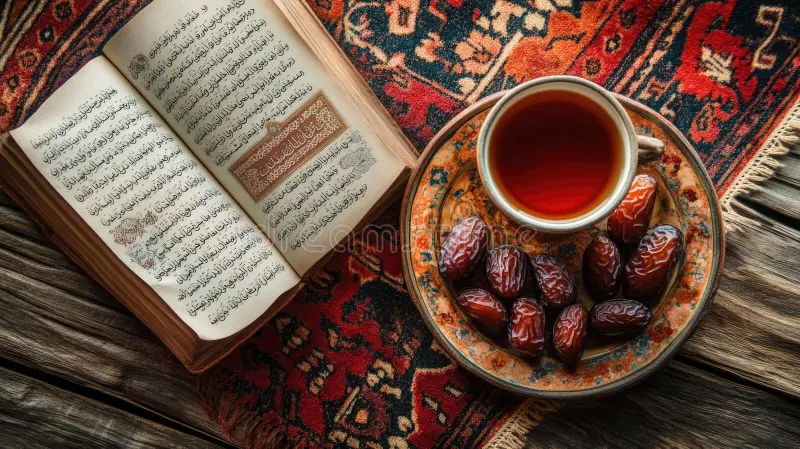
Balancing Islamic Obligations and Hormonal Conditions
How do health conditions like PCOS, endometriosis, and hormonal conditions affect my Islamic obligations?
For many Muslim women, managing conditions like PCOS, endometriosis, and other hormonal imbalances can make it challenging to navigate our religious practices. Understanding the rulings around menstruation (ḥayḍ) and irregular bleeding (istiḥāḍah) is essential for fulfilling obligations such as prayer, fasting, and Qur’ān recitation. Thankfully, in our faith, these conditions are taken into account when determining our religious obligations. These rulings are guided by principles of ease and flexibility (rukhṣah) provided in Islamic Law (the sharīʿah).
A reminder of ease and compassion
Remember, dear sisters, that Allah ﷻ says:
“Allah intends for you ease and does not intend for you hardship.” (Qur’ān 2:185)
In moments of difficulty, it is comforting to recall the gentle words of our beloved Prophet ﷺ, who reminded us: “Indeed, the religion is easy…” (Bukhārī)
If you experience these conditions, please remember you are never alone; Allah ﷻ is fully aware of your circumstances. It can be challenging and stressful to distinguish between true menstruation and irregular bleeding, especially when this uncertainty affects your daily prayers, Qur’ān recitation, and fasting. But our faith is replete with compassion – Allah ﷻ rewards the effort, even when circumstances make worship challenging.
These conditions often extend beyond your menstrual cycle. They can trigger mental health challenges – such as depression and frequent mood swings – while also causing physical pain that affects your overall emotional well-being. However, Allah ﷻ has given us the gift of being rewarded for our intentions. If you strive to fulfil your obligations but circumstances prevent you from doing so, know that your efforts are seen and valued. Health issues can mean that plans don’t always work out, and that is perfectly understood – Allah sees, hears, and knows every challenge you face.
We have been given clear guidelines on when to pray, fast, and perform rituals like tawāf. If you encounter difficulties meeting these obligations, seek the option of ease. As promised in Qur’ān 2:286, Allah ﷻ will never burden a soul more than it can bear. And, this is also translated as Allah ﷻ will never require any soul of that which it cannot carry out. (Qur’an 2:286). This comforting principle is especially relevant for those managing chronic health issues affecting their menstrual cycles.
Religious obligations affected by menstrual irregularities
May the following guidelines on obligations affected by ḥayḍ and istiḥāḍah bring you clarity and ease, in shāʾ Allāh:
Ṣalah (Prayer)
- During ḥayḍ: Prayer is not obligatory or permissible.
- During istiḥāḍah: Prayer is obligatory. Women must clean themselves, use a pad if necessary, and perform wuḍūʾ for each prayer.
Fasting (Ṣawm)
- During ḥayḍ: Fasting is not valid, and missed fasts must be made up later.
- During istiḥāḍah: Fasting is valid, and no makeup is required.
Qur’ān Recitation
- During ḥayḍ: The majority of scholars prohibit direct recitation or touching the Qur’an.
- During istiḥāḍah: Recitation and handling the Qur’an are permissible.
Ḥajj and Tawaf
- During ḥayḍ: Tawāf cannot be performed.
- During istiḥāḍah: Tawāf is allowed provided proper purification steps are taken.
Practical tips for managing worship
Here are some practical tips for managing worship with these conditions:
- Focus on intentions: Always remember that Allah rewards ﷻ sincere efforts. Your dedication to worship, even amid health challenges, is honored and valued.
- Track your cycle: Keep a detailed record of your bleeding patterns to identify ḥayḍ versus istiḥāḍah.
- Consult a scholar: For complex situations, seek guidance from a knowledgeable scholar.
- Use pads/pantyliners: During istiḥāḍah, these can help prevent soiling your clothes and maintain the purity required for prayer.
Final thoughts
Navigating religious obligations with conditions like PCOS, endometriosis, or hormonal disorders can be complex, but you are never alone on this journey. May Allah ﷻ bless you with abundant comfort, resilience, and strength on your journey. May His Infinite Mercy be bestowed upon through every challenge, filling your heart with peace and ease. Ameen.

